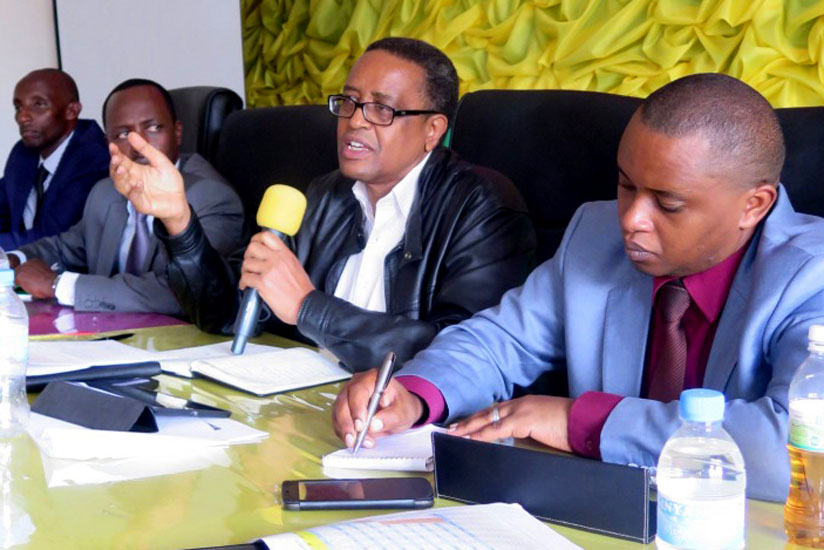THE MINISTRY OF EDUCATION is considering helping schools fully exploit the opportunities offered by advances in Information and Communication Technology (ICT) in the country to improve the quality of education.


THE MINISTRY OF EDUCATION is considering helping schools fully exploit the opportunities offered by advances in Information and Communication Technology (ICT) in the country to improve the quality of education.
The Minister for Education, Prof. Silas Lwakabamba, said on Wednesday that though ICT was among the priorities in the education sector, the existing infrastructure is yet to be fully exploited.
He was speaking at a provincial consultative meeting on education in Nyanza District.
The meeting brought together officials from the Ministry of Education, local leaders, head teachers, parents’ representatives and education officers at the local levels from across the Southern Province.
Lwakabamba told participants that his ministry was considering helping schools, including those in rural areas, to access and benefit from existing ICT infrastructure and services such as the fibre optic cable and the recently rolled out 4G internet to help improve the quality of education.
Last month, Rwanda launched the hi-speed 4th Generation Long-Term Evolution (4G-LTE) internet network, the fastest wireless communication on high-speed data for mobile phones, computers and other devices.
"For some time now we have been talking about the use of ICTs in education but we have not reached the desired level, mostly because we have not taken advantage of latest developments in the ICT field,” Lwakabamba told The New Times shortly after the meeting.
"We want to go to a step further.”
He said a number of schools have been helped to acquire computers while the government invested billions of francs in rolling out optic cables throughout the country and bringing 4G internet.
"How does all that benefit education?” he asked.
The ministry is also hoping that a recent government deal with POSITIVO BGH, a South American multinational firm, to set up a computer-manufacturing factory in Kigali will enable schools, students and teachers to easily access affordable computers.
The company’s plant in Kigali is set to start production in March next year. It will be manufacturing about 700,000 units per year, according to officials.
Lwakabamba said the government was committed to buying at least 150,000 computer units from the plant annually, and that schools are among the institutions that will benefit from the scheme.
"We are putting up a master plan to exploit the existing facilities and then put content onto them (computers). We are starting to develop content [that can be loaded on computers and other gadgets] for the new curriculum and then students can teach themselves to make education system more student-centred than using only teachers teaching with a blackboard,” Lwakabamba said.
"The factory is adding value to what we had before; they will produce fairly affordable computers which our students and teachers can use.”
He added: "Our students will be able to access information even beyond what they have [from their teachers]. With digital content, students can learn by themselves [and] if they can’t understand something they can get more explanations by clicking a button.
"If they click another button they can also get a video of a professor teaching them on that topic that they don’t understand.”
However, while the launch of 4G has generally excited the public, concerns have been raised about the pricing which many people say is out of reach for most people.
At a 4G exhibition and awareness campaign earlier this month in Kigali, Airtel Modem cost Rwf54, 000 while other wireless devices went for Rwf78, 000. MTN modem cost Rwf35, 000.
Airtel and MTN sell 5GB at a retail price of Rwf18, 600 for a month’s subscription.
They also offer two unlimited versions of 4G. Monthly subscription with bundles of up to 100GB costs Rwf345, 000, while 200GB costs Rwf687, 000 per month.
Addressing concerns about the prices, Patrick Nyirishema, the director general of Rwanda Utilities Regulatory Authority (Rura), said they would, in due course, discuss with service providers on how to make the service more affordable.
Jean Philbert Nsengimana, the Minister for Youth and ICT, reckons that competition will eventually drive prices down.
The government says it wants 95 per cent of citizens connected to the internet by 2017.
Rura says 20 per cent of the population was active internet users by March 2014.


